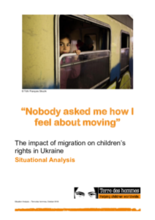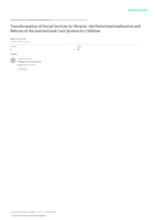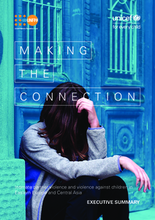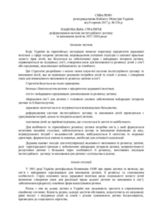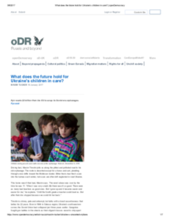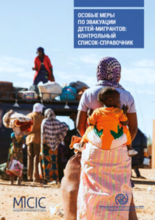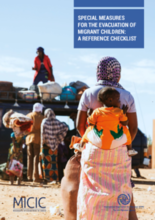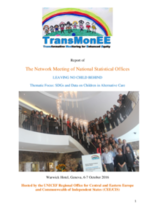This section includes resources, news and other key documents related to children's care in the context of the current humanitarian crisis affecting Ukraine and surrounding countries. This section is updated daily.
News
Featured Resources
Related Tools and Guidance
Country Care Snapshot
Events
Other Resources
Displaying 161 - 170 of 194
The present research looks at the main migration patterns and trends of internal and outward migration from Ukraine trying to assess the push and pull factors for regular and irregular migration which affect children.
The 2017 country factsheets provide an update on the status of child protection and care reforms from 16 European countries that are the focus of Opening Doors for Europe’s Children campaign in Phase II.
This article focuses on the study of current transformation processes occurring in Ukraine in the provision of social services to various groups of children, in particular orphan children and children deprived of parental care.
This report summarizes the main findings of the ‘Study on Violence against Women and Violence against Children,’ conducted in Albania, Belarus, Kazakhstan, the Kyrgyz Republic, Moldova, Turkey and Ukraine from 2016 to 2017, to identify major areas of overlap between intimate partner violence (IPV) and violence against children (VAC).
Цю Стратегію розроблено з метою зміни існуючої системи інституційного догляду та виховання дітей, яка не відповідає реальним потребам дітей та сімей з дітьми, і створення умов для повноцінного виховання та розвитку дитини в сім’ї.
This study provides a background on the historical, cultural, and social circumstances in Ukraine as it relates to the continued institutionalization of children in the country, despite efforts for reform.
In this issue of ODR, Maxim Tucker details the deinstitutionalization challenges facing Ukraine
Контрольный список входит в состав инструментария, разработанного МОМ в качестве технического руководства по практическому применению Руководящих положений Инициативы МИСИК, включая руководящее положение 13: Переселение и при необходимости эвакуация мигрантов. Это свод не имеющих обязательной силы рекомендуемых действий, направленных на то, чтобы потребности детей-мигрантов в особой защите были учтены в ходе гуманитарной эвакуации. С помощью этого функционального инструмента государства и международные организации смогут соблюсти принципы защиты детей (ЗД) при организации гуманитарной эвакуации, учитывая индивидуальные условия уязвимости детеймигрантов и обеспечивая их потребности до, во время и после эвакуации. Подразумевается, что рекомендуемые действия будут в полной мере внедрены в операции по всеобщей эвакуации; они не предполагают организации отдельного процесса эвакуации детей.
The Checklist is a part of the toolkit developed by the IOM to provide technical guidance for the operationalization of the MICIC Initiative Guidelines. It is a non-binding compilation of recommended actions to ensure that the specific protection needs of migrant children are taken into consideration during humanitarian evacuations.
This document summarizes the content of the 6-7 October 2016 Network Meeting of National Statistical Offices. The event comprised of a number of presentations on topics related to the SDGs and data on children in alternative care.

